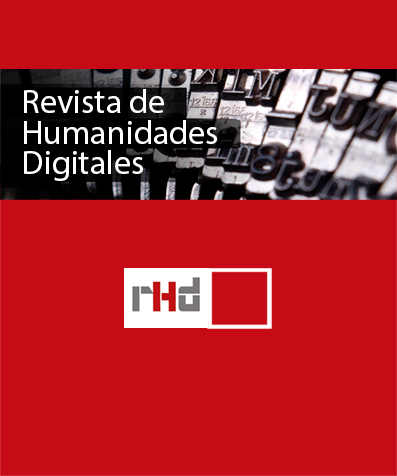Opening up traditional cultural knowledge by means of European infrastructures: the examples of exploreAT! & EGI Engage
DOI:
https://doi.org/10.5944/rhd.vol.3.2019.23188Keywords:
Digital Humanities, European infrastructures, cultural diversity, multidisciplinary collaboration, Cloud infrastructureAbstract
The rapid development of new digital tools and infrastructures in recent years and their application to a variety of disciplines has transformed how we store, access and retrieve information available to us. This has also shaped the ways how knowledge in a diverse cultural context is presented, used and re-used. The exploreAT! project builds upon not only Austrian, but also European cultural identity from the aspect of language, in particular dialects. Unlike standard languages, dialects are in times of globalization under considerable threat of diminishing, and this ultimately poses a risk to the intangible record that is language and through which a history of tangible culture is expressed. In this paper we elaborate on the possibilities digital means and the infrastructure and services of the EGI-Engage project offer in revealing and giving access to unique traditional cultural knowledge contained in a non-standard language resource on the example of the Bavarian dialects in Austria (DBÖ). Digital tools and services allow our heterogeneous corpus of data to be virtually exploited and preserved. The flexibility of the internet allow these data to become not only visible, but searchable and extractable. Through the digitization efforts, and use of European infrastructures the hidden cultural narratives within the data can be uncovered, enriched and shared for the benefit of knowledge society.
Downloads
Published
How to Cite
Issue
Section
License
Copyright (c) 2021 Amelie Dorn, Eveline Wandl-Vogt, Davor Davidovic, Roberto Barbera

This work is licensed under a Creative Commons Attribution-NonCommercial 4.0 International License.
RHD provides immediate free access to its content under the principle that making research available to the public for free favors greater global knowledge sharing. RHD does not charge fees to authors for the submission or processing of articles
Users can read, download, distribute, print, search, partially reproduce or link to the texts without requesting prior permission from the editor or the author.
RHD does not charge fees to authors for the processing of works, nor fees for the publication of their articles.
RHD is free from the moment of the publication of each issue and its contents are distributed with Creative Commons license No Commercial 4.0 International , which allows the user free and open access, criteria that meet the definition of open access of the Budapest Declaration in favor of open access. This means that they can be copied, used, disseminated, transmitted and exhibited publicly, provided that the authorship and the original source of their publication are cited (magazine, editorial and URL of the work, not used for commercial purposes, mention the existence and specifications of this license of use.
The authors retain the copyright and guarantee the journal the right to be the first publication of the work. The authors are free to distribute their work published in the magazine in other media, such as an institutional repository or inclusion in a book.



